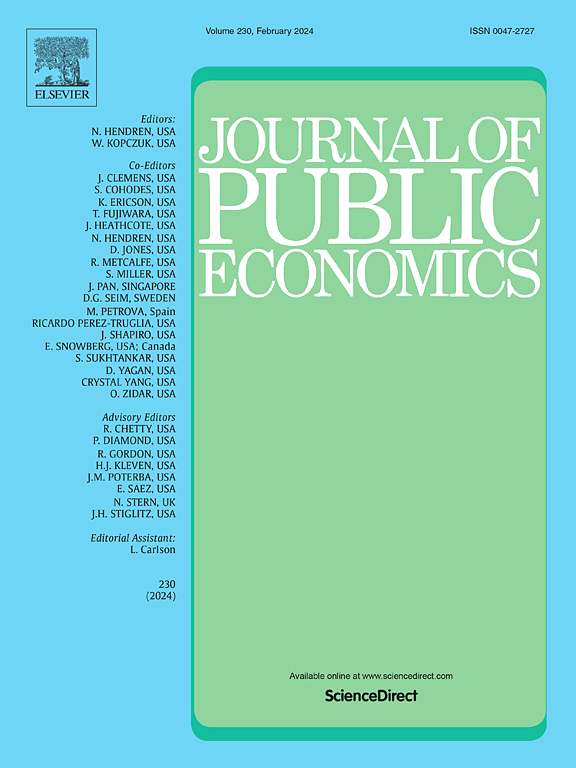消费减税与经济刺激付款
IF 3.4
1区 经济学
Q1 ECONOMICS
引用次数: 0
摘要
最近的研究表明,在非李嘉图消费者行为的宏观经济模型中,统一转移支付等同于降息。也就是说,当短期利率零下限约束时,政策制定者可以使用刺激性支付来替代传统的货币政策。我们认为,在同一类模型中,在纳税人付出相同成本的情况下,临时降低消费税比转移支付更能刺激经济。消费税的削减同时激活了收入渠道和替代渠道,并促使财富分布中的所有消费者做出强烈反应。在定量异质代理新凯恩斯主义模型中模拟这些政策,我们发现产出的扩张幅度是前者的两倍。本文章由计算机程序翻译,如有差异,请以英文原文为准。
Consumption tax cuts vs stimulus payments
Recent work shows that in macroeconomic models with non-Ricardian consumer behavior, uniform transfers are equivalent to interest rate cuts. That is, policymakers can use stimulus payments to substitute for conventional monetary policy when, say, the zero lower bound on short-term rates binds. We argue that in the same class of models, temporarily reducing consumption taxes delivers more stimulus than transfers — at the same cost to the taxpayer. Consumption tax cuts activate both income and substitution channels and prompt a strong response from all consumers across the wealth distribution. Simulating these policies in a quantitative heterogeneous agent New Keynesian model, we find output expands twice as much.
求助全文
通过发布文献求助,成功后即可免费获取论文全文。
去求助
来源期刊

Journal of Public Economics
ECONOMICS-
CiteScore
14.10
自引率
2.00%
发文量
139
审稿时长
70 days
期刊介绍:
The Journal of Public Economics aims to promote original scientific research in the field of public economics, focusing on the utilization of contemporary economic theory and quantitative analysis methodologies. It serves as a platform for the international scholarly community to engage in discussions on public policy matters.
 求助内容:
求助内容: 应助结果提醒方式:
应助结果提醒方式:


